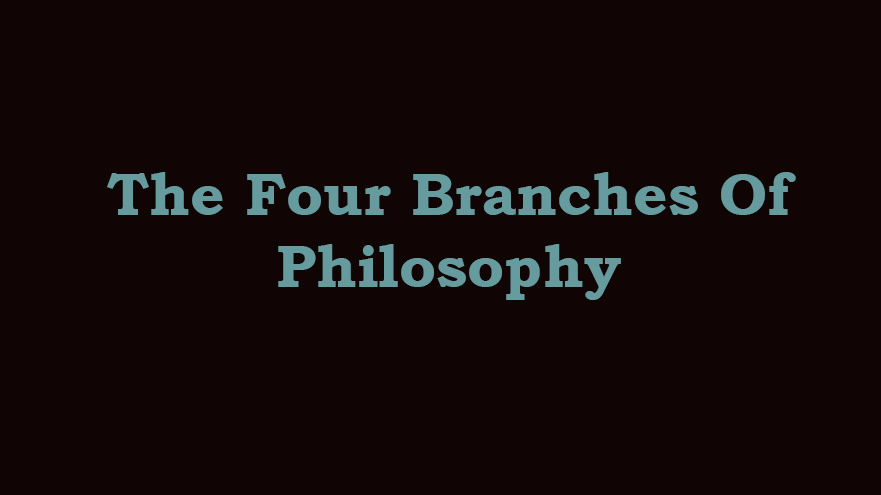
The Four Branches Of Philosophy
WHAT IS PHILOSOPHY?
The English word ‘philosophy’ is the combination of the Greek words ‘philein’ (to love), and ‘sophia’ (wisdom). Thus the word philosophy means love of wisdom. It refers also to the exercise of human reason for analyzing the basic realities of human life in pursuit of truth. Everyone uses philosophy in the day to day life. It is for everybody. Philosophy provides the basis for worldview or a framework within which the individual analyses and make sense out of the welter of data he receives in his day to day life process. The Christian must remember that Jesus Christ is the power and wisdom of God personified (1Cor 1:24; 30; Prov 9:10). You shall know the truth and the truth shall set you free (Jn 8:32;14:6).
The Four Branches Of Philosophy
Logic (study of the principles of correct thinking), epistemology (theory of knowledge), metaphysics (study of the nature of ultimate reality) and axiology (study of values). (Philosophy, science and history are the three important disciplines the apologist should try to acquaint with).
Two Methods Of Philosophy
1. Critical Method uses the technique of persistent questioning of terms and propositions with the intention of clarifying and exposing the real meaning of the statements, and eliminate inconsistencies and errors.
2. The constructive method develops a theoretical concept or framework to explain a particular problem, issue or realities of the world. Egs: the theory of prime mover by Aristotle; the theory of relativity by Einstein.
THE COMMUNICATION OF PHILOSOPHY THROUGH THREE LEVELS
At the theoretical level the truth is analyzed, at the existential level truth is clarified through illustrations, and at the pragmatic level truth is applied. Jesus uses this method in Matthew 21:23-32. The Pharisees asked Jesus a level 3 question. But Jesus takes them from level 3 to level 1 by putting forth a transitional question, and moves them from the subjective and personal level to the level of objective truth; Thus He disarms their question. Jesus questions the very validity of their question. He questioned their assumption that He was the only one to answer that particular question. He forces them to give the answer, which they expected from Jesus. Jesus illustrates the issue involved by giving a parable. At the next level, Jesus applies the truth to the Pharisees. The study of logic helps us to formulate transitional questions at the three levels.
Our effort must be to lead the person to the knowledge of the truth (2Tim 2:22-26). Hence we must depend on the Lord for wisdom and spiritual power. The battle for the minds of the people is primarily spiritual, not intellectual. It is not our knowledge, but the Gospel, which is the power of God unto salvation. *
The First Principles: They are the self-evident truths fundamental to any meaningful thinking. They can in no way be bypassed in the thinking process. Four major disciplines include philosophy, science, law and history. The first principles of cosmology include the laws of causality (Rom 1:20), uniformity and thermodynamics (Gen 2:2-3; 3:17-19). Specified complexity (Ps 139:13-16). General revelation (Rom 1:19). Finite universe (2Pet 3:12). Law is discovered, not created. Hence there must be an absolute law-giver. Law is in the heart (Rom 2:15). The unchanging standard of God’s justice is the only basis human rights.



